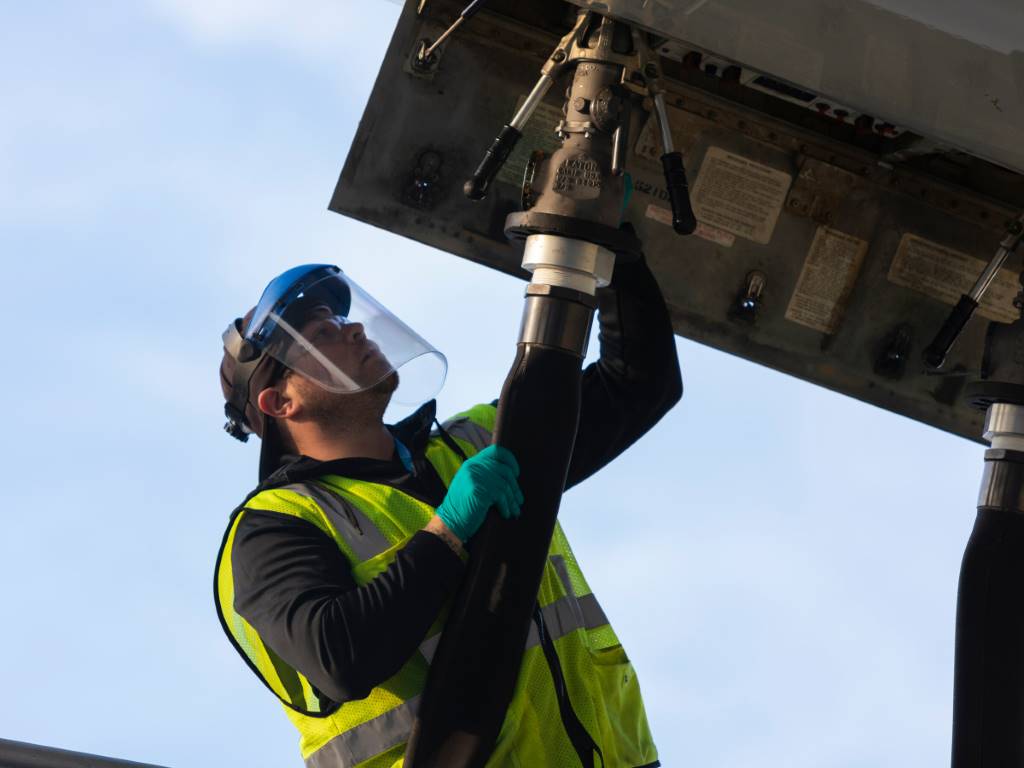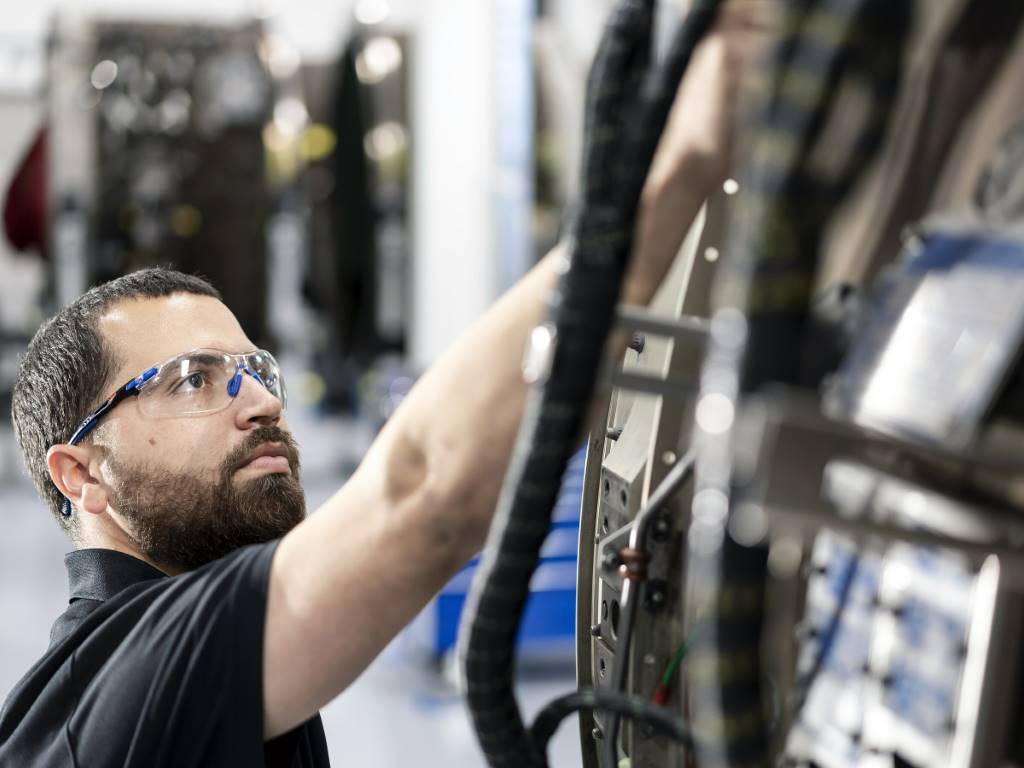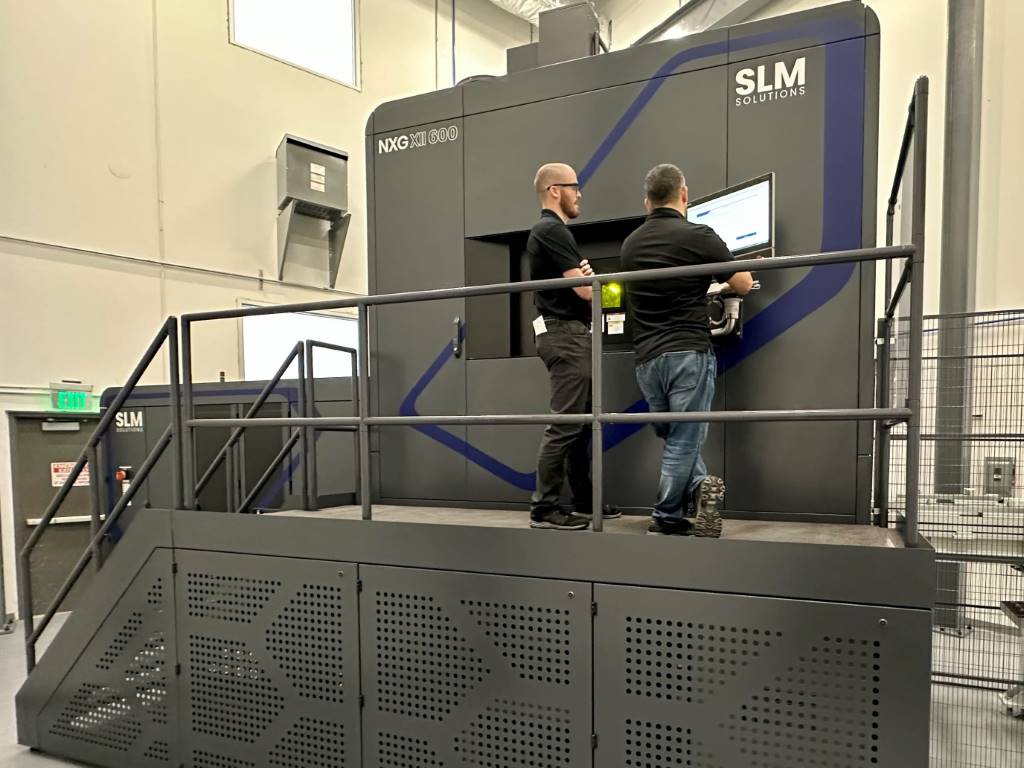Basque country's aero industry faces gravest challenge in its history

The Aeronautics and Space Cluster Association HEGAN today held its annual General Assembly remotely.
Arantxa Tapia, Basque Government's Minister for Economic Development, Sustainability and Environment, inaugurated the event, where Carlos Alzola, CEO of ITP Aero, was re-elected as President of the Cluster for another two years.
In this event, figures for 2019 were presented, showing annual variation rates compared to expected forecasts until the first month of 2020, before they started slumping. The dynamism of Euskadi’s (the Basque country) aerospace industry must be highlighted, since with just 2.5% of Industrial Employment it led to 5.7% of Industrial GDP. This has been increasing over the last years and reveals the importance of this Cluster in terms of the creation of highly-skilled employment.
Despite these figures, all Members, present at the meeting, agreed on the fact that overall the Industry, and in particular Euskadi’s, are going through one of the gravest and severest challenges they have ever faced in their history as a result of the deep and, expectedly, long-lasting worldwide crisis caused by the SARS-CoV-2 pandemic.
Industry forecasts
The outbreak of the Covid-19 has led to an unprecedented crisis in the aviation industry crisis, causing a severe drop in international air traffic as well as travelling and operations restrictions and cancellations. According to EuroControl, air traffic in Europe went down in 90% (in 80% worldwide, according to IATA) at the beginning of the pandemic. At this moment we are seeing passenger traffic levels reduced to 56% compared to the same period last year. This has been accompanied by a brusque drop in aircraft demand from airlines and operators, postponing and cancelling orders and deliveries, impacting aircraft manufacture. Therefore, suppliers and vendors have seen their production levels suddenly and abruptly going down to 40-60%.
Aircraft manufacturers are not optimistic. They estimate passenger demands will only recover in the mid and long run, due to the need for connectivity and the strength of mobility. Unfortunately, this gradual recovery of air traffic is not expected to have positive repercussions on the aeronautical industry for a very long time. Indeed, forecasts and several reports and studies still cannot place an exact date on the sector’s recovery. The most widespread opinion is that it will not happen before the next 4 or 5 years.
This situation impacts fully on employment and puts pressure on the risk of the industry losing strategic skills (talent and competitiveness), essential for a symmetrical exit (under the same conditions as in the other countries against whom we are competing as well as highly protected sectors) from the first stage of recovery.
Reactivating the sector
In this complex context, the aerospace industry is working jointly on a European, national and local level, in coordination with companies, administrations and social agents, with an eye on the future and contributing to economic recovery, by reinforcing the industrial fabric so essential for the country. The Central Government and several regional administrations have recently reiterated their appreciation towards the strategic features the aeronautical sector provides to the Spanish economy. Last year, this activity had 45,000 direct jobs (100,000 indirect jobs), turnover exceeding €10,500 million, contributing 6% to the State’s industrial GDP.
HEGAN believes it is necessary to continue working with different administrations in designing and implementing measures, under an ambitious budget, that will enable a fundamental activity for its economy to be maintained. In addition, it is time to adopt measures to support the supply chain that will help them overcome liquidity difficulties, guarantee the survival of companies and maintain the technological level we enjoy today, which has been so hard to achieve, in order to drive the development of new technologies for future aviation.
Some of these necessary actions, but not all, are included in the Agreement signed by the Central Government and Airbus at the end of last July, which is gradually being implemented. Among others, the implementation of new aeronautical programmes for Airbus that may start materialising will serve to preserve technological and industrial capabilities, reinforcing the sector and auxiliary industries, trying to minimise the impact on employment caused by this crisis. This would enable the sector to keep up a certain level of activity, a positive impact on highly qualified positions and to continue manufacturing new planes that respond to current environmental and technological challenges.
Furthermore, as part of this Agreement, a supply chain support Fund is in the pipeline. This fund would enable the sector to develop, consolidate, contribute to overcoming current times and maintain key skills, mainly those of SMEs that have urgent financial needs (Airbus will participate in this fund as its driving force, along with private companies and administrations). It has also secured an increase of 25% of investment from the Spanish Administration in ESA programmes, or the promotion of an Aeronautical Technology Plan (PTA in Spanish), between 2020 and 2023. This programme would be funded by EU’s Recovery Funds and managed by the Spanish Innovation Agency (CDTI) for the purpose of financing maintenance and reinforcement of the current capabilities of the aeronautical industry and preparing the next sustainable emission-free technology generation.
Clean aviation
In its fight against Covid-19 and as it looks to take on the big challenge of Climate Change, still a priority, the EU has launched the Clean Aviation Initiative: Strategic Research and Innovation Agenda. It is a framework to support aeronautical R&D to enable Europe to maintain its leading role in aviation and the aviation industry worldwide. This initiative stems from the renowned European Clean Sky public-private programme. In the last 13 years it has been at the forefront of the development of technologies for more sustainable aircrafts, and Cluster’s Members have taken an active part in it.
For the EU’s political agenda, the success of the Green Deal in aviation, in other words European ecological initiative for becoming the first climate-neutral continent, depends on the capacity of the European aeronautical industry to maintain its position in the global scenario through its capacity to export aircrafts and technologies. In this context, the EU proposed to make a smart use of recovery plans currently being prepared in terms of accelerating technology transition towards a new sustainable aviation system consisting of eco-friendly aircrafts, engines and systems, which may place European aviation and aeronautical industries in the perfect position to undertake a leadership role in a global strategic chain value, ensure critical capabilities and determine new global sustainability standards. Hybrid and fully-electric architectures, ultra-efficient aircraft architectures and technologies to create hydrogen-propelled aircrafts are three of the RTD efforts to promote energy efficiency and the reduction of emissions in future planes.
Smart industry
Euskadi is also where the transition from Advanced Manufacturing to Smart Industry is being prepared. From the perspective of FA's global strategic planning in Euskadi over the last 10 years, the challenges of sustainability and making the most of Artificial Intelligence are the new elements marking the evolution from Advanced Manufacturing Strategy (2010-15) followed by the Basque Industry 4.0 Strategy (2016-20).
Smart Industry consists of creating and applying innovation and sustainable and digital state-of-the-art manufacturing technologies for the creation of high added value products and services, as well as developing new business models with great impact potential in terms of wealth, employment and minimised environmental effects. It includes the design of products and processes from the perspective of life cycle, the use of sustainable materials and processes and the application of digital solutions that improve functionality, efficiency and/or user experience, as well as contributing to the addition of value through the exploitation of data.
Its Sector has participated in a contrasting process, along with the other revitalising Basque organisations, to enrich the definition of this strategy to enable Euskadi to drive innovation, technological development, sustainability and talent as levers of competitiveness in the industry, as well as to place itself in a leading position in some business niches in an economy that is becoming more and more global.













